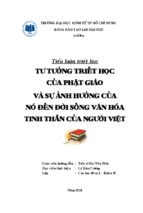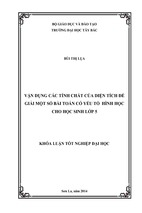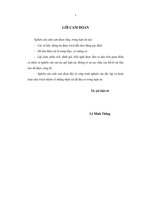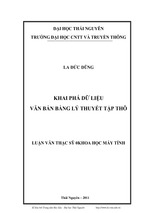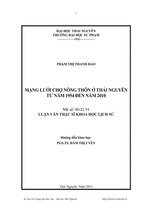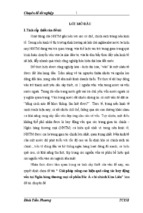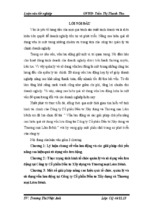FACULTY OF LAW
University of Lund
Cecilia Moll
Agency in Comparative and
Private International Law
Master thesis
20 points
Supervisor: Professor Michael Bogdan
Private International Law
Spring 2001
Contents
SUMMARY
1
PREFACE
3
ABBREVIATIONS
4
1
6
INTRODUCTION
1.1
The issue
6
1.2
Terminology
6
1.3
Statement of purpose
9
1.4
Statement of restraints
10
1.5
Outline and sources
11
2
THE CONCEPT OF AGENCY
2.1
12
The English and American approach
13
2.1.1
Actual authority
14
2.1.2
Apparent authority and estoppel
16
2.1.3
Usual authority
18
2.1.4
Agency powers
19
2.1.5
Disclosed principals
22
2.1.6
The doctrine of undisclosed principal
24
2.1.7
The doctrine of election and merger
28
2.2
The Swedish approach
30
2.2.1
Internal and external authority
32
2.2.2
Independent or dependent authority
33
2.2.3
The commission agent
36
2.2.4
The bulvan with undisclosed principal
2.3
38
2.3.1
2.3.2
The comparison
The authority aspect
41
Liability in contract
42
43
3
PRIVATE INTERNATIONAL LAW
3.1
3.2
4
Suggested connecting factors
44
44
3.1.1
Contract of mandate
45
3.1.2
Where principal has his domicile or business
46
3.1.3
Where third party has his domicile or business
47
3.1.4
Where agent has his domicile or business
48
3.1.5
Where the agent performs (lex loci actus)
49
3.1.6
Main contract
51
Conflict of laws in case law
CONCLUSIONS
54
58
SUPPLEMENT A: HAC & ENGLISH RULE
62
SUPPLEMENT B: ROME CONV.
63
BIBLIOGRAPHY
64
STATUTES AND RESTATEMENTS
67
TABLE OF CASES
68
Summary
It is very common that business transactions, in particular internationally,
are made through agents. It is therefore interesting and clearly relevant to be
aware of the diversities in the agency laws of different countries. The major
differences between the Swedish agency law on the one hand and the
English and American on the other hand are encountered when focusing on
how authority can be established. Since authority of an agent is required in
order to conclude a binding contract between the principal and the third
party this means that the agency laws differ also in the area of liability in
contract.
In English and American law authority is divided into actual and apparent
authority depending on what has appeared in the eyes of the third party.
Apparent authority entails that the third party can reasonably assume that the
agent has been given authority when the principal has held him out as if he
did. This provides English and American agency law with an exception from
the general rule that actual authority is based on the message to the agent
only, irrespective of what the third party knows or does not know. In
Swedish law on the other hand the most important element of authority,
according to the general rule, is that the third party has received a message
of authority from the principal. There is, however, an exception from this
rule, called dependent authority, which has much in common with the notion
actual authority in English and American law. This shows that both
situations, i.e. holding out to the third party and a simple message to the
agent, are recognised as grounds for authority although the general rule and
the exception are reversed in Swedish law.
Further, the doctrine of undisclosed principal is recognised in England and
the U.S.A. This entails that there is a binding contract between the third
party and the principal even when the former did not know that the agent
was not acting for himself, but in the capacity of an agent. This is a much
discussed feature of agency law, which is sometimes considered an anomaly
since it is an obstruction to ordinary rules of contract law. Since Swedish
law does not recognise this doctrine other categories of agents have been
created and the general rule is that the commission agent and the bulvan
cannot bind the principal since they are acting in their own names.
Having mentioned some of the differences in agency law brings me to the
core of this essay, namely what happens when there is a conflict of laws
regarding an international agency relationship. The Rome Convention does
1
not cover the relation between the principal and the third party and no other
binding statutory rule can be found on this issue. Instead one has to consider
different connecting factors such as the place where the agent performs (lex
loci actus) or the country where the agent or the principal have their business establishments or habitual residence. All suggestions in this essay include advantages as well as disadvantages depending on whose interests one
aims to preserve. The most appropriate connecting factor is probably not just
one of these but a combination of at least two of them. For instance it has
been argued that the country where the agent has his business establishment
could function especially well in combination with the lex loci actus. This is
to say that the law of the country where the agent is established would
determine whether the principal is bound in relation to the third party as
long as it is reasonable to assume that the third party can ascertain which
law this would be. If the agent does not have an established place of
business or performs his acts in another country it may be more appropriate
that the law of the country where the agent acts governs the question of
authority.
In a leading English textbook on private international law1 it is suggested
that the law that governs the main contract should also be applicable to the
external relationship by way of consistency. Two advantages with this rule
are that third party would be able to rely on the same law whether his
problems relate to general contract matters or specific agency matters and
also that it makes a choice of law affecting the external relationship
possible. A disadvantage with this suggested factor is that the principal may
not be able to assess the applicable law if the connection to the main
contract is fortuitous, which it may be for instance if the agent is given a
wide sphere to act within. Another disadvantage is that the agent’s
conclusion of a contract may consist in several transactions resulting in
different laws being applicable on each transaction.
To sum up, the most important factors to keep in mind when assessing the
value of a connecting factor are: the interests of the third party and to a
lesser extent those of the principal; whether it is possible that the connecting
factor is fortuitous; whether the connecting factor could have been
fraudulently chosen by either party and whether the appointed governing law
is foreseeable to the parties.
Dicey & Morris (see further 3.1.6 and notes).
2
Preface
My interest in agency law has become greater while working with this
thesis. I did not know what the differences were in Swedish law compared to
English and American law when I first began and find that I have learnt a lot
during this term. My choice of subject was really that of private international
law since I find international relations very interesting and writing a
comparative survey on agency law sort of came up along the way. Applying
the conflict of laws to agency law indeed has been a challenge, especially
considering the inconsistent terminology in literature and case law. My hope
is that I have made some sense and that this essay will bring some light on
the conflict of laws relating to agency matters.
I would like to thank Peter Wells who has corrected my English and my
father for all the help with my computer and the layout.
Lund 2001
Cecilia Moll
3
Abbreviations
A.
Atlantic Reporter
A.C.
Appeal Cases
All ER
All England Law Reports
Art.
Article
CA
Court of Appeal
C.L.R.
Cambridge Law Journal
Ch.
Chancery Division
Cir.
Circuit
Cit.
Cited
Co.
Company
E.D.Pa.
Eastern District of Pennsylvania
EEC
European Economic Community
F.
Federal Reporter
F.Supp.
Federal Supplement
HAC
The Hague Agency Convention
Inc.
Incorporated
Ins.
Insurance
K.B.
King’s Bench
L.J.
Lord Justice
L.Q.R.
Law Quarterly Review
L.R.
Law Reports
N.J.Super.L.
New Jersey Superior Court Reports
N.W.
North Western Reporter
N.Y.S
New York Supplement
NJA
Nytt Juridiskt Arkiv (Cases from the
Swedish Supreme Court)
Pa.
Pacific Reporter
par.
Paragraph (corresponding to the
abbreviation “st.” for “stycke” in
Swedish references)
Prop.
Proposed bill from the Swedish
Government (proposition)
Q.B.
Q.B.D.
Rome Conv.
s.
Queen’s Bench
So.
Queen’s Bench Division
SOU
Rome Convention
U.S.A.
Section (corresponding to “§” in
Swedish references, e.g. 10 § AvtL
will be referred to as s. 10 Contracts
Act)
Southern Reporter
Statens Offentliga Utredningar
(Legal reports of the Swedish state)
The United States of America
1 Introduction
1.1 The issue
The concept of agency is of great importance and is frequently used in order
to render the creation of commercial contracts all over the world less troublesome. As an introduction I would like to present a hypothetical story relating to agency with the purpose of demonstrating the importance of contractual agency and the conflict of laws in relation thereto. I will get back to
this story at the very end of the essay, where some conclusions are made.
Peter Principal, who runs a business in the U.S.A., wants to sell electricity to
Tom’s firm in Sweden. He has neither the time nor the expertise needed to
achieve this by his own means. Therefore Peter chooses to enter into an
agency contract with Adam Agent, a polite Englishman. This contract gives
Adam the mandate and authority to sell the electricity from Peter to inter
alia Tom’s firm in Sweden on Peter’s behalf. Knowing that Tom’s confidence in him might have slightly diminished after their former affairs in the
grocery business, Peter tells his agent not to disclose his name when contracting with Tom. Adam completes his mission and signs the contract that
entitles Tom to electricity (specified in detail, but leaving out the name of
the seller i.e. Peter) with his own name. When the electricity has already
been delivered to Sweden, Peter discovers that the payment due on his
account has not been fully paid and consequently he wants to sue Tom. Or
should he sue his agent, Adam?
Come to think of it Peter never gave Adam instructions to sell the electricity
without demanding payment in advance according to the usual custom in the
business. In relation to this he wonders which law governs the authority
given to Adam? What are the rules in Sweden, England and the U.S.A.
respectively concerning agency and how authority is established? Which law
governs the external relationship, i.e. whether there is a binding contract
between Peter principal and Tom, the third party? Can Peter sue Adam, Tom
or both according to the applicable law?
1.2 Terminology
There are lots of notions in relation to agency law, which may be somewhat
confusing if not straightened out at an early stage. The following explanations refer to how these notions are used in this thesis only, and may be
6
found to have slightly different meanings elsewhere. The order in which the
notions are explained is not alphabetically but rather in the order I found it
more appropriate to present them.
Principal
The principal is the person or company, who wants to enter into a contract
or other relation with someone, but is unable or unwilling to achieve this
through his own acts. For this reason he needs an agent to act on his behalf.
Agent
An agent is the intermediary who acts on the principal’s behalf and sometimes, but not necessarily, in his name.
Third party
The third party is the person dealing with the agent, who becomes bound in
relation to the principal, the agent or both, depending on the circumstances
and the law applied.
External relationship2
The relationship between the principal and the third party will be referred to
as the external relationship since it is intended that these two parties end up
in a binding relationship notwithstanding that they may never have met. The
external relationship covers the question whether the agent had authority to
bind the principal vis-à-vis the third party under the main contract.
Internal relationship
The internal relationship is that between the principal and the agent, who are
the parties concluding the contract of mandate (see infra).
External authority
The external authority is what the agent is allowed to do. This authority is
visual to the third party and is a free translation of the Swedish notion
behörighet.
Internal authority
The internal authority consists in the instructions given to the agent without
being shown to the third party, i.e. it is what the agent may do on the
principal’s behalf. This is a free translation of the Swedish notion
befogenhet.
The relationship of the agent vis-à-vis the third party is also of an external nature, but this
will not be dealt with further in the following. Therefore the external relationship for the
purpose of this essay will refer to the relation between the principal and third party.
7
Contract of mandate
The contract of mandate refers to the contract between the principal and the
agent in which the mission to be accomplished on behalf of the former is
given. Usually this contract will also include the authority of the agent to act
accordingly.
Main contract3
The main contract is the contract, entered into by the agent with the third
party, which is intended to bind the principal vis-à-vis the third party.
Express actual4 authority
The express actual authority is the most obvious authority and is given by
the principal in a written statement or orally to the agent. The third party as
well as the agent can always rely on this kind of authority. Furthermore it is
important to add already that no matter what the authority is called it is
equally effective.5
Implied actual authority
If the principal acts as if he intended to give further authority than expressly
stated and the agent relies on this conduct, the actual authority is extended to
and includes implied actual authority. This authority must be based on the
actual authority, but is understood impliedly rather than being inferred from
a written or oral statement. Most frequently this will be referred to as simply
“implied authority”, but I have chosen the heading above to show that it is
just another form of actual authority.
Apparent authority6
In contrast to the implied authority the apparent authority is based on communication to and reliance by the third party directly. In some cases the third
party may have relied on the conduct of the principal as being acquiescence
in the acts of the agent. If this reliance is reasonable it is called apparent
authority. This kind of authority can exist even where there was no actual
(express or implied) authority. It is never reasonable for the third party to
rely on apparent authority if he knew that the principal had given no such
authority. Hence, the third party must rely on his assumptions in good faith
and he must know who the principal is.
When several contracts are in question the proper notion would be “main transaction”.
This is also referred to as “real” authority in the literature (e.g. Reuschlein & Gregory).
Reuschlein & Gregory, p. 33, however it may under rare circumstances make a difference
which kind of authority is established, Verhagen, p. 308.
This is sometimes referred to as “ostensible authority” in English case law and literature,
but this is a notion I have chosen not to use in this thesis.
8
Usual7 authority
The usual authority is also called customary or incidental authority and
derives from a situation when the agent performs acts normally related to the
position in which he is acting. Rather than being a type of authority to be
dealt with separately, it may be seen as a term used to interpret the scope of
the existing authority.8 If this view is accepted, the wider the implied or
apparent authority is, the more usual powers may be connected to it.
1.3 Statement of purpose
My purpose with this thesis is firstly to explain some of the differences in
the law of agency in Sweden, a civil law country, on the one hand and in
England and the USA, two common law countries on the other hand. The
central questions in the introductory comparative part will be whether or not
the principal becomes legally bound in relation to the third party through the
acts of an agent and whether the agent drops out of the contract to the same
extent. In order to understand how the parties become bound I will also give
a brief description of the different forms of authority and how they are
established.
For the purpose of this comparative survey I will, without asserting that this
is the proper view, presuppose the coincidence of English and American
law9 on this matter and only separate the two legal systems when diversities
are encountered.10 Conversely I will assume the legal situation relating to
agency in Sweden to be essentially different from the former and therefore
present the Swedish legal aspect separately. To stress the diversities I will
conclude the second chapter by summarising and comparing the special
features of Swedish law and common law.
If the regulations on agency were not different in some aspects, the conflict
of laws would not create a problem. This explains why the comparative part
was an essential introduction to the aspect of private international law,
which leads me to the second object of this thesis.
N.B. It should not be confused with the American notion “inherent agency powers” found
in the Restatement (Second) of Agency § 8A (see infra 2.1.4).
Grönfors, p. 37.
Note that American law will be dealt with as an entity and that the states’ different laws
will not be approached separately.
10
It may, according to Grönfors p. 35, not be far from the truth to presuppose the
coincidence of English and American agency law today.
9
In the second part the purpose is to discuss different principles used to solve
the conflict of laws relating to agency. The central question herein is what
law should decide whether or not the agent had authority to bind the principal through his act and create a binding external relationship. If the question
of liability, i.e. whether the principal is a party to the main contract or not, is
answered in the affirmative in accordance with the law of one country but
not in the law of another, it is material which law governs the external relationship. Different connecting factors are considered appropriate for the
choice of law and it is my intention that these theories will be accounted for
in part two of this thesis.
1.4 Statement of restraints
This essay deals with consensual agency only. This includes all forms of
agency contracts where the principal gives his consent that a binding contract will be entered into on his behalf. Thus all forms of trusts and legal
representation, i.e. agents whose authority is predetermined by law11, are
excluded. Furthermore I will not deal with every aspect of agency; rather the
focus is on the contractual liability that may be incurred by the principal in
relation to the third party. Hence the liability of an agent for acts completed
without authority (falsus procurator) in relation to the third party will not be
accounted for in this essay.
In the second part the conflict of laws will be discussed exclusively with
regard to the external relationship between the principal and the third party.
The reason for this is that the internal relationship is one of pure contractual
nature, which is already regulated in The Rome Convention12. This convention tells us that the law of the country to which the contract has the
closest relationship governs the contract of mandate between the principal
and agent unless the parties have agreed on another law.13 The easiest way
to establish such a close relationship is to find that the characteristic performance is related to one country. The external relationship on the other
hand does not fall within this convention, which is explicitly stated in article
1 (2)(f).
e.g. where the agent is acting as shareholder in company or where a parent is acting on
behalf of a minor.
The Convention on the law applicable to contractual obligations 80/934/EEC, Rome on
19 June 1980 (implemented in England as well as in Sweden).
Art 4 Rome Convention.
10
1.5 Outline and sources
The first part of this thesis contains a description of agency law in three different jurisdictions, namely that of Sweden, England and the U.S.A. respectively. The focus is on the different forms of authority and different categories of agents, since this is what affects the principal’s liability on the contract. The method in this part will be mainly descriptive in order to give an
outline of some important features of agency law in these countries.
The second part of this thesis contains the private international law
perspective of agency law. Here, I will focus on the conflict of laws and the
problem of concluding which principle is likely to be more suitable and
ascertainable to stipulate the law to govern the external relationship of
agency. Accordingly, six different connecting factors will be described, followed by some of the relevant case law. The final sub-chapter contains a
summary of the situation on private international law and conclusions on the
effect of the connecting factors in relation to the hypothetical story in the
introduction.
The primary sources in the first part are Swedish, English and American
legal textbooks (preferably by Grönfors, Tiberg, Bowstead (edited by Reynolds)
and Reuschlein & Gregory), case law and also the American Restatement
(Second) of Agency. The latter is not a law but rather consists in descriptive
recommendations, which are voluntarily respected or disregarded in the different states. It gives a simple outline of the law, without being legally
binding and without separating the laws of different states.14 The
Restatement of Agency is however accepted in most American courts and is
given a high status.15
In the second part I will rely mostly on literature, as there are very few cases
directly relevant. The primary textbooks are Scoles & Hay, Dicey & Morris,
Bogdan (1999) and a very detailed book on the subject written by Verhagen,
a Dutch author. Also the American Restatement (Second) Conflict of laws is
used as a reference. It is important to stress that there is not one unified law
of agency and one of private international law in the U.S.A., but rather
separate laws in every state.16 In fact, the regulations on the conflict of laws
Bogdan 1993, p. 166f.
Grönfors, p. 35 note 5 and e.g. Ortiz v. Duff-Norton Co., Inc. 975 F.Supp. 713 (E.D.Pa
1997) at p. 722 (the Pennsylvanian court has adopted part of the Restatement of Agency).
16
However the substantive agency law within the U.S.A is quite uniform, according to
Scoles & Hay, p. 714.
11
were first developed to operate in interstate conflicts rather than international conflicts; thus, the regulations of this area differ from state to state,
although fortunately the Restatement on Conflict of laws is much referred
to.17 Having said this about interstate diversities it must be added that many
of the laws of the various states are in fact similar, which is natural considering most of them are based on the common law tradition.18 With this kept
in mind I intend to account for the American rules as uniformly as possible.
It should be mentioned in this context that there is a uniform law in the
U.S.A. in the business law area: The Uniform Commercial Code. This codification contains rules on for instance partnership, but there are no uniform
agency rules therein, except for those relating strictly to negotiable instruments.
2 The concept of agency
Business through agency is generally used to broaden the scope of the business arena with the use of another person’s services. In short, a principal
employs an agent and pays him for the benefits assimilated through his acts.
The basic element of agency is the same in Swedish, English and American
law, i.e. there must be a manifestation coming from the principal, inferring
that he consents to that the agent will act on his behalf. There are however
some differences when it comes to labelling the consent, i.e. the authority,
and also in ascertaining to what extent the principal and / or the agent
becomes a party to the contract.
One aspect of agency is that the rules on liability are related to a problem of
conflicting interests between the principal, the agent and the third party
respectively. Several principles must therefore be constructed to protect the
interest of only one of the parties and it is with this choice of protection that
the laws sometimes differ and present different views. In general, the
protection of the agent could be preferred since agents otherwise may be
intimidated from performing services for others at all, whereas the reason to
protect either the principal or the third party is more of a contractual nature.
However, if the law never protected the principal and instead had him bound
against his will to every contract through an agent, the use of agency would
Bogdan 1993, p. 149 and 166.
Bogdan 1993, p. 148.
12
probably become less interesting no matter how much the agents were
protected. The rules must therefore be well balanced and protect all parties.
It is important not to underestimate the need to provide protection for third
parties, who enter into contracts with agents in good faith presuming the
agent has valid authorisation.
2.1 The English and American approach
In England as well as in the U.S.A. the concept of agency is based on the
message of authority from the principal directly to the agent.19 Hence to find
actual authority it is irrelevant whether or not the third party had any
knowledge of the authority given to the agent. Consequently, the concept is
very wide and includes several different forms of agency, which in many
other jurisdictions are separated from the traditional agency rules. This is
mainly so because it is of less importance whether or not an agent acts in his
own name in England and the U.S.A.; in both cases the intermediary will be
considered an agent and his acts will be governed by the rules on agency.20
However, the object of agency is in English and American law, just as in
most other jurisdictions to my knowledge, to create a legal relationship
between the principal and the third party.21
The general definition of agency is “[…] the relationship which exists
between two persons, one of whom expressly or impliedly consents that the
other should represent him or act on his behalf, and the other of whom
similarly consents to represent the former or so to act.”22 Hence, the consent
of the principal to have a particular agent acting on his behalf constitutes
authority to create a legal relationship externally. Even though the general
rule is that only the principal and the third party will become bound to the
transactions committed in agency, there are several exceptions to this rule.
The English and American approach opens up for the possibility of the agent
or the principal alternatively to become bound in relation to the third party.
Further, the fact that the third party never knew of the existence of a
principal is not an obstacle to a binding relationship between the two. These
peculiarities, or necessary anomalies if you like, will be accounted for in
chapter 2.1.6.
Tiberg 1991, p. 417 and Grönfors p. 37f.
SOU 1988:63, p. 150f.
Halsbury’s, p. 418, para. 701.
Bowstead, p. 1.
13
Apart from becoming bound due to actual authority, the principal may also
rely on one or more of the following concepts: apparent authority, authority
by estoppel or agency powers.23 These will be accounted for in the following
and I will also try to explain the so called usual / incidental / customary
authority. It should be added that authority might also result from a subsequent ratification by the principal, when the acts were not authorised to
begin with. This will not be dealt with further in this essay and nor will the
kind of authority24 arising from emergency situations.
2.1.1 Actual authority
It is indeed characteristic for the concept of agency that the agent has been
given authority by means of a manifestation or conduct emanating from the
principal. The authority is equal to what and how much the agent “may” do,
i.e. it is distinguished from what he has the ability to do.25 Inasmuch as the
agent acts within his authority he will be able to create a contractual relationship between the principal and the third party. Usually it is not necessary
for the third party, purporting to hold a principal liable, to specify which
type of authority he relies on, but there must be authority of one type or
another to establish agency.26 The most obvious and easiest way to establish
authority is when the principal has expressly communicated to the agent that
he delegates to the latter the power to act in specific matters on his behalf.
This can be achieved through a written power of attorney but it is in most
situations sufficient that it is communicated orally.27 Apart from this so
called express actual authority, it may also be established impliedly, e.g.
when the agent rightfully interprets the authority to sell chattels on behalf of
the principal also to include authority to receive payment. In short the actual
authority is based on the words, the acts or the conduct of the principal.28
The implied actual authority can be established only when the circumstances
suggest that it is reasonable for the agent to rely on his belief that the
principal meant for him to have this authority. The implied authority cannot
include something outside the ordinary course of business, but rather should
Grönfors p. 33.
This is called “agency by necessity” in English and American law and “negotiorum
gestio” in Swedish law.
Reuschlein & Gregory, p. 32.
Lind v. Schenley Industries, Inc. 278 F.2d 79 at p. 80 (8).
Reuschlein & Gregory, p. 34.
Reuschlein & Gregory, p. 34f.
14
be implied by the usage in the employment.29 In a case from a Pennsylvanian court the implied authority was defined as an authority “[…] to do
those acts of agent that are necessary, proper and usual in exercise of agent’s
express authority”30. As will be understood from chapter 2.1.3 this can
easily be confused with usual authority but I still find that these words very
well explain what implied authority can be and that there in such cases most
frequently is express authority as well. Irrespective of in which manner the
authority is given it is equally “real” and the acts of an agent will incur legal
consequences as long as there is some kind of authority. It is also important
to add that both the express and the implied actual authority can exist
whether or not the third party knows about it.31
The major consequence of there being authority is that the principal, as a
general rule, becomes legally bound and entitled by the acts of the agent.
Acts outside the scope of authority, whether express or implied, do however
not as a general rule bind the principal and vice versa.32 When the agent acts
within the scope of authority and the result of the agent’s acts is that a contract is entered into, the parties to the contract are the principal and the third
party. Hence, the agent will normally be left outside the relationship and
lack the possibility to claim any rights or be held liable under the contract.
This is normally referred to as the agent dropping out of the contract.
A possible exception to the rule on contractual liability on the principal was
under English case law for a long time thought to be the situation where the
principal was a foreigner, i.e. when the agent was contracting in England for
a principal from another country.33 The case of Armstrong v. Stokes34 shows
that the judges must have disliked the idea of businessmen contracting over
the borders because of the risk that they would subject themselves to problems relating to conflict of laws. More recent case law shows that this is not
really an exception to the general rules of agency.35 The fact that the principal is a foreigner shall however still be one of many circumstances of
importance when determining whether or not a contractual relationship
between the principal and the third party has been established.36
Halsbury’s, para. 736, p. 441 and Reuschlein & Gregory, p. 33.
Ortiz v. Duff-Norton Co., Inc. 975 F.Supp. 713 (E.D.Pa. 1997) at p. 713 (4).
Reuschlein & Gregory, p. 34.
Halsbury’s, p. 492, para. 820.
Armstrong v. Stokes [1872] L.R. 7 Q.B. 598.
[1872] L.R. 7 Q.B. 598.
Teheran-Europe Co. Ltd. v. S.T. Belton (Tractors) Ltd. [1968] 2 Q.B. 545.
Teheran-Europe Co. Ltd. v. S.T. Belton (Tractors) Ltd. [1968] 2 Q.B. 545, 558.
15
Moving on to what may be referred to as the instructions given to the agent
in secret, the question comes up whether these internal instructions in fact
becomes a part of the authority given. At least the American view seems to
be that the secret instructions do limit to the scope of authority, but that the
principal still becomes bound when the agent only slightly deviates from the
instructions.37
2.1.2 Apparent authority and estoppel
It should be mentioned under this heading that the authority discussed above
is based on contractual consent and never on estoppel.38 Under this heading
however, I have chosen to discuss two forms of authority that are similar in
many respects but where the second one is based on estoppel.39 This means
that it is not a contractual authority but rather one arising from torts, with the
object to save the third party from loss.40 Some heavy criticism can be found
against the quite often used description of authority as apparent and based
on estoppel at the same time, i.e. when estoppel is used to explain apparent
authority. The basis for this criticism is that apparent authority creates a
“real” contract, enforceable by both the third party and the principal,
whereas only the third party has a right to enforce the contract by grounds of
estoppel.41 Another requisite for basing authority on estoppel is that the third
party must have suffered a loss in order to be compensated for loss, i.e. there
must have been a change of position to his detriment, which is not necessary
when simply entering into a contract.42 I have despite this fact chosen to deal
with both these types of authority under the same heading since there is
often a matter of estoppel when there is apparent authority and because the
English view seems to be that the apparent authority is based on estoppel.43
Further, both aspects of authority are based on the principle that one should
be bound by his words, rather than the underlying intention,44 which will be
explained in the following.
Apparent authority and authority by estoppel have in common that they are
based on external appearance i.e. the element of holding out. In order to hold
Restatement (Second) of Agency, § 160 and Reuschlein & Gregory, p. 64f.
Reuschlein & Gregory, p.34.
See further Restatement (Second) of Agency §§ 8, 8A and comments.
Reuschlein & Gregory, p. 66 and Restatement (Second) Agency § 8 (comment d).
Steffen, p. 128f and Reuschlein & Gregory, p. 58f.
Reuschlein & Gregory, p. 58 and 66f and Steffen, p. 128f.
Bowstead, p. 240f and Reuschlein & Gregory, p. 67.
Restatement (Second) of Agency § 8 (comment d).
16
the agent out as having authority the principal must lead the third party to
believe that he wishes the acts to be committed on his behalf.45 Further, the
third party must have acted on this reliance, which is enough to bind the
principal even though there might be no actual authority.46 Because the
principal must hold the agent out as being his agent this is also called the
doctrine of holding out47 and obviously can only be established where the
third party knows who the principal is. It goes without saying that if the
principal is unknown to exist (undisclosed) he cannot possibly reveal anything about the agency to the third party.
For any of these two authorities to be established it is also material that the
third party has acted in good faith relying on some sort of declaration or
conduct on the part of the principal or someone else who is permitted to
make the representation.48 It is important to stress that it is the third party,
i.e. not the agent, who is the one relying on whatever emanates from the
principal, for otherwise we would be talking about an implied form of
authority49.
It must be considered fair that it is the principal’s duty to inform the third
party, engaged in a contract, of the true facts, especially if he has once
falsely declared that the agent had authority to act on his behalf. If it was not
so, the third party would be left to act at his on peril as soon as he did not
have something equal to a written evidence of the authority given. When
the third party is relying on an act being authorised due to what the principal
implies, and the agent too relies on this implication, the authority established
is both apparent and implied. Even though there is an important distinction
between the two in theory, it is of less importance how the authority is
labelled considering that the result is the same no matter how the authority is
established. It is more important to know the difference between actual
authority at the one hand and apparent authority on the other. The reason
that this separation must be kept in mind is that apparent authority to bind
the principal can be established even when it is obvious that there was no
actual authority. By way of illustration I will give an example of a situation
where this would be the case.
Bowstead, p. 235.
Bowstead, p. 235.
Halsbury’s, p. 434, para. 725.
Verhagen p. 23 and Restatement (Second) of Agency §§ 8,8B and Bowstead, p. 236.
See supra 2.1.1.
17
- Xem thêm -




